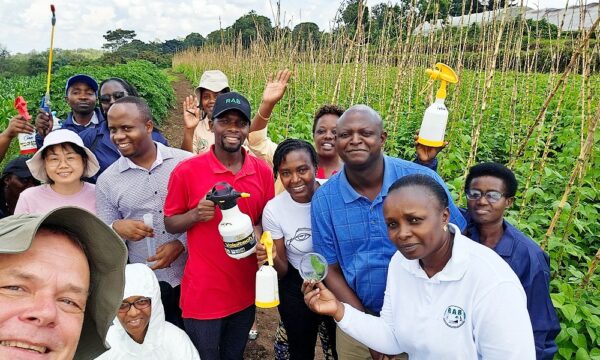
The influx of imported flowers in time for Valentine’s Day increases the risk of invasive pests making their way into native vegetation. Throughout January and February each year, customs and border agents have to inspect floods of bouquets arriving from across the globe to their intended markets in the US and Europe. While the pretty petals are intended to impress loved ones, they could also be carrying unwanted guests.
The biggest consumer markets for cut flowers in Europe are Germany, the UK, France and Italy. In addition to being a major producer of cut flowers, the Netherlands’ famous flower auctions are the main trade hub for the global trade in flowers. Roses, the crucial element to any Valentine’s Day bouquet, are the most important cut flower in the European market, with over 5 billion stems imported from outside the EU in 2014. Supplies often come from developing countries including Kenya, Uganda and Thailand as well as Latin America. In the US, shipments from South America are under particularly close scrutiny at Miami, the preferred import point for cut flower stems, as the majority of flowers arrive from Colombia and Ecuador.
Some of the most common pests intercepted at the border include thrips, aphids, as well as moths and miner flies. These pests are known to carry multiple plant-infecting viruses and it is unclear how many pests are missed each year during “Valentine’s season”. Customs agents have to try and keep as many invasive species from entering the country in an effort to prevent them from entering local ecosystems, something that could cost millions to control.
2 Comments
Leave a Reply
Related News & Blogs
Biological control in action: Zambia’s field days on fighting fall armyworm
Experts from CABI recently held two field days and an expo in Zambia, showcasing innovative approaches to pest management to 584 farmers, agro-dealers and other stakeholders to help raise awareness of approaches to tackle the invasive fall armyworm (Sp…
11 June 2025






[…] 17. The Valentine’s Day Invasion (February) […]
[…] 17. The Valentine’s Day Invasion (February) […]